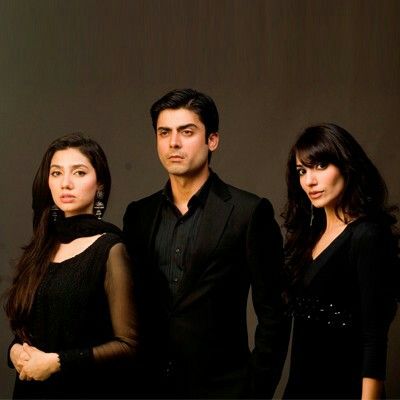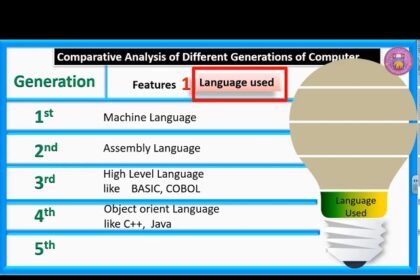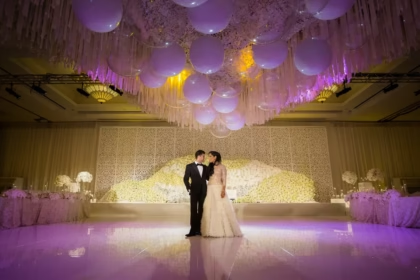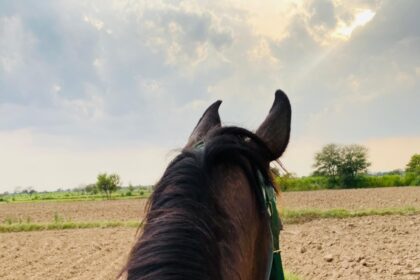In Ishq Murshid, Shahmeer Sikandar strolls around Karachi in loafers that cost more than the average monthly rent for most Pakistanis. The magnificence of his home — dripping chandeliers, luxury watches, gleaming cars — is central to the frame. But the word salary is never uttered. His wealth appears divine, mysterious, and untouchable — never earned, never questioned.
In Khaie, money takes on a different meaning. Set against the blood-soaked backdrop of tribal vengeance, it hides behind mountains, inheritance feuds, and generational disputes. It’s never named the true source of power — but it is. In Standup Girl, the humor carries class anxiety beneath the surface. The series avoids asking what it means to take creative risks when your family doesn’t own a car, much less a generator, and you’re a girl from “the wrong side” of Lahore hoping to become a comedian.
Like our political elite, Pakistani television excels at everything except honesty — especially when it comes to money.
Aestheticised, Demonised, Erased
In the PTV serials of the 1980s and 1990s — Tanhaiyaan, Dhoop Kinare — class was portrayed with subtlety. A piano in the drawing room, a foreign degree, an accent — these gentle cues separated the upper-middle class from the truly privileged. Class, like grief, lived in the details.
Today, that nuance is gone. Wealth is either erased entirely, demonised — as in Meray Paas Tum Ho, where transactional villains drive the plot — or aestheticised, as in Humsafar’s polished marble floors. Money appears as a plot device, not a critique. Even shows that claim to challenge power, like Ishq Murshid, avoid addressing where money comes from or who holds on to it.
As political economist and media scholar Aasim Sajjad Akhtar writes, Pakistani television remains “the most effective apparatus for depoliticising structural issues” — class included (The Politics of Common Sense, 2018).
Our dramas rely on familiar clichés to numb the audience: the wealthy are lonely, the poor are noble, the middle-class woman must marry or she will suffer.
The Silence of the Sponsored
This silence has a reason — it is bought.
Production houses like Momina Duraid Productions and 7th Sky Entertainment rely on corporate sponsorships and branded content. Detergent companies don’t want stories about bonded labor or rent control. They want spotless homes and quiet, smiling housewives.
Take Khaie as an example. Beneath its sweeping camerawork and haunting soundtrack lies a refusal to acknowledge the economic roots of tribal violence. Land, inheritance, access to resources — these are not systemic issues, just personal grudges. This kind of narrative amnesia is deliberate.
Scholar Sarah Banet-Weiser calls this aesthetic capitalism — when capital is turned into story, culture, and beauty (Authentic™, 2012). In Pakistan, that means aligning wardrobe with class status: a woman in a Khaadi dupatta is middle class; without it, she’s elite — or worse, immoral.
When the Script Fails the Street
This erasure has consequences. In a country where over 40% of children under five suffer from stunting due to poverty (UNICEF, 2023), class isn’t a side note — it’s the foundation. It decides your language, your hospital, and your dreams.
And yet, like drone shots of Defence housing, our television dramas float above real life. Our domestic workers spend fourteen hours cleaning houses they can never afford, then return to cook dinner for their own families. But we don’t write about that. We don’t write about the driver who drops children off at grammar school while his own go uneducated.
In Standup Girl, this silence is particularly glaring. A show about public speech and ambition forgets to ask the most important question: who can afford to try and fail? The show mistakenly claims all dreams come with the same price tag. THEY DON’T.
What Would an Honest Drama Look Like?
A truthful drama wouldn’t just show money — it would show cost. A mother selling her wedding bangles to fund tuition. A son hiding his food delivery job from his friends. A marriage proposal made in exchange for an air conditioner.
Instead of romanticising Shahmeer Sikandar, it would portray him as a product of feudal power. It would ask: who polishes his marble floors? Who pays when he rebels?
But this honesty requires courage. Class is the final taboo in Pakistan. Politics can be discussed — carefully. Mental health can be explored — when it’s trending. Gender can be addressed — selectively. But money? That’s impolite.
And yet, class isn’t just about who owns what — it’s about who gets to dream. Until our dramas learn to tell that story, they will remain beautiful lies.















